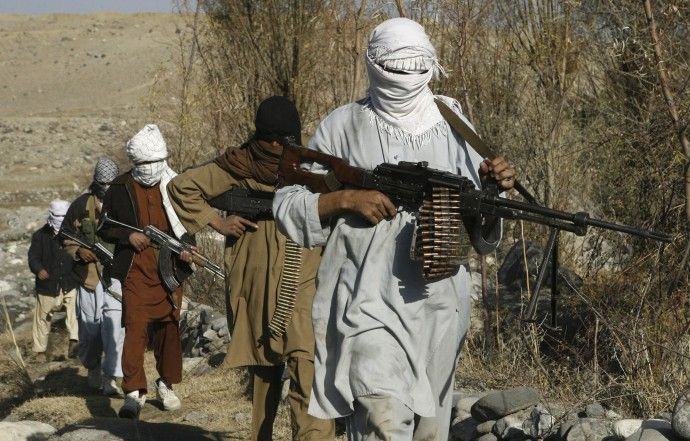Taliban claims responsibility for Pakistan attack, warns worse attacks in coming days

Pakistan militant group, Taliban, has claimed responsibility for the Friday bombings in the country that reportedly killed more than 70 people.
In a telephonic interview, Ahsanullah Ahsan, a spokesman for the group told the Associated Press that the attack has been conducted as a form of retaliation for Osama Bin Laden's death.
The attack took place outside a paramilitary force academy in Shabqadar, Charsadda district in Pakistan injuring some trainee cadets and civilians alike. Around twelve vehicles were destroyed in the blasts along with 20 shops.
Police officials informed that one of the suicide bombers, a man in his late teens or early 20s, set off one blast in the middle of the road. This was followed by a second, more powerful blast leaving behind pieces of glass mixed with human flesh and blood.
NO U.S. SCALE BACK
The United States has made clear it will go after militants in Pakistan when it finds them and it has stepped up attacks in the northwest with its drone aircraft -- another source of friction between the uneasy allies -- since bin Laden's death.
Pakistan officially objects to the attacks, although U.S. officials say they are carried out on an understanding with Pakistan.
There are absolutely no plans at present to cease or scale back U.S. counterterrorism operations in Pakistan, one U.S. official said on condition of anonymity. Efforts to thwart terrorism will continue.
Some U.S. lawmakers have called for suspending aid to Pakistan because of doubts about its commitment in going after violent Islamists.
But President Barack Obama's administration has stressed the importance of maintaining cooperation with Pakistan in the interests of battling militancy and bringing stability to neighboring Afghanistan.
Debate over whether Bush administration interrogation practices helped find bin Laden heated up when Senator John McCain said torture of detained militants did not help track down the al Qaeda leader.
McCain said CIA Director Leon Panetta had told him the trail to bin Laden did not -- as some aides to former President George W. Bush have asserted -- begin with information from Khalid Sheikh Mohammed, the self-professed mastermind of the September 11, 2001, attacks on the United States who the U.S. government acknowledges was waterboarded 183 times.
McCain said he wanted to clear up misinformation that could make Americans think harsh treatment of prisoners was acceptable. Waterboarding, a former of simulated drowning, is deemed torture by human rights groups and others.
In short, it was not torture or cruel, inhuman and degrading treatment of detainees that got us the major leads that ultimately enabled our intelligence community to find Osama bin Laden, McCain said in the Senate.
Multiple U.S. intelligence officials told Reuters the real breakthrough that led to bin Laden came from a mysterious CIA detainee named Hassan Ghul. Ghul, who was not captured until 2004 at the earliest, was not subjected to waterboarding.
It was Ghul, the officials said, who after years of hints from other detainees provided the information that prompted the CIA to focus intensely on finding Abu Ahmed al Kuwaiti, a pseudonym for the courier who would lead them to bin Laden.
© Copyright IBTimes 2024. All rights reserved.





















